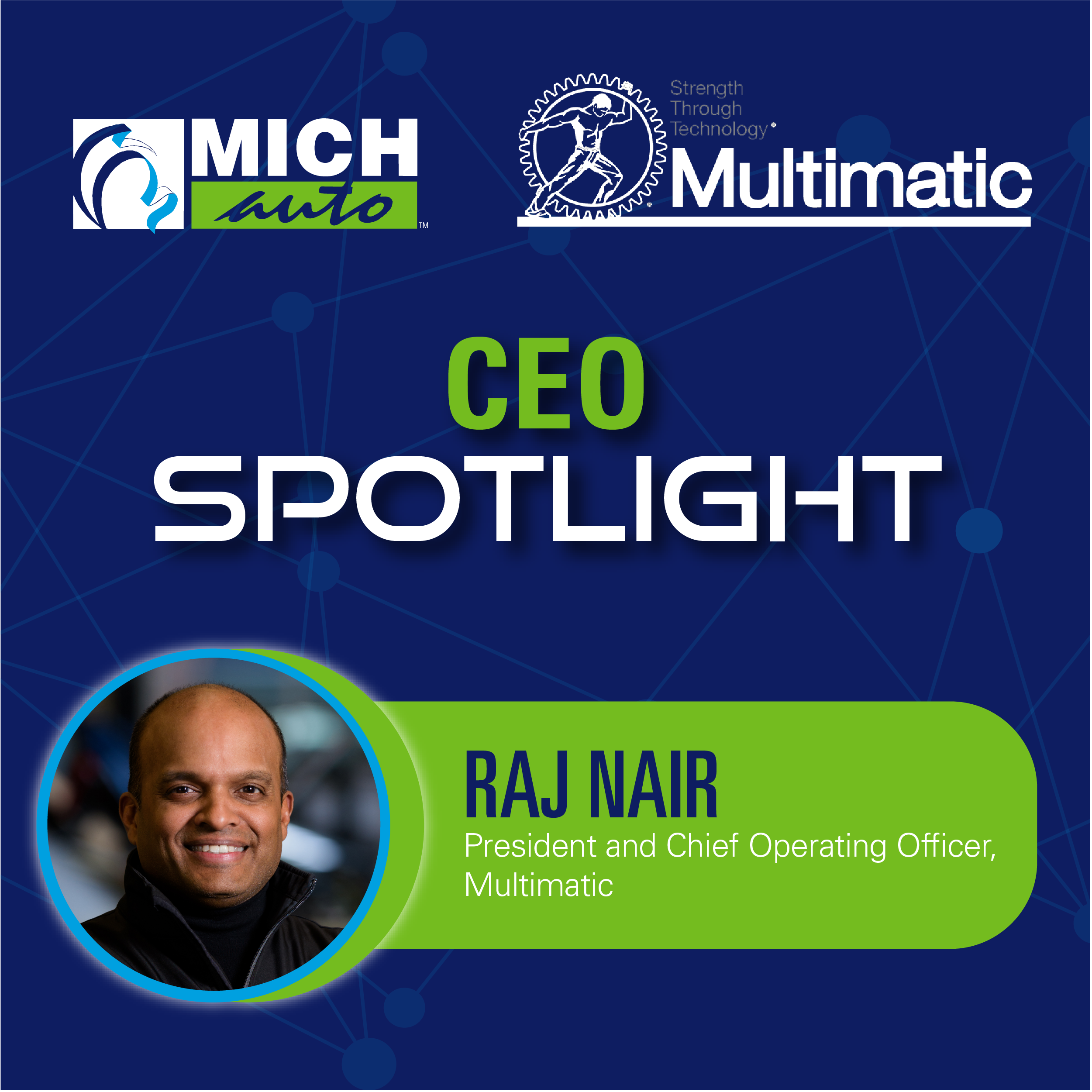CEO Spotlight: Multimatic’s Raj Nair
September 1, 2021 Raj Nair is the president and chief operating officer of Multimatic. MichAuto spoke with Nair about the lessons he learned early in his career and what he predicts will happen to autonomous vehicles in the coming years.
Raj Nair is the president and chief operating officer of Multimatic. MichAuto spoke with Nair about the lessons he learned early in his career and what he predicts will happen to autonomous vehicles in the coming years.
What is an important lesson you learned early in your career?
I’m not sure I learned it early enough in my career but an important lesson is that a customer mindset is key. The importance of this relative to a company’s external customer goes without saying and there has been plenty of books written about that. However, I’ve found that it’s just as crucial that a team has that same mindset about its internal customer. For example, a line operator needs to feel that the next operator on the line is their customer; and Engineering needs to work with Manufacturing as a customer when working on new designs. We are all here to serve the next person in the value chain. If we do that to the best of our ability, it results in doing the best job in serving the end customer.
What is your prediction for autonomous vehicles over the next five years? The next 10-20 years?
I think people sometimes forget that Waymo already has an autonomous vehicle fleet in commercial service in Phoenix. Companies like Argo and Aurora are also well progressed so I am bullish on the development of SAE Level 4 technology (not so much for Level 5) as well as further commercial applications in taxi service and dock to dock delivery in the next five years. However, I do think that the transition to affordable autonomous vehicles for personal ownership is further out. I’m also concerned that consumer overconfidence in SAE Level 2 and 3 systems may have safety repercussions which may eventually cause public distrust of true Level 4 systems.
What book are you currently reading that you would recommend? What is the key takeaway?
I recently read “The Better Angels of Our Nature” by Steven Pinker. All of Pinker’s books are exceptional but this one is especially timely. With all the bad news over the past few years, you would think that we live in one of the most violent eras ever. Actually, the opposite is true. Pinker shows us with facts, data, and trends over long periods of human history that violence has actually been significantly reduced, even in relatively recent history. During these seemingly pessimistic times, it’s a very optimistic and inspiring message of the human race’s innate ability to progress.
